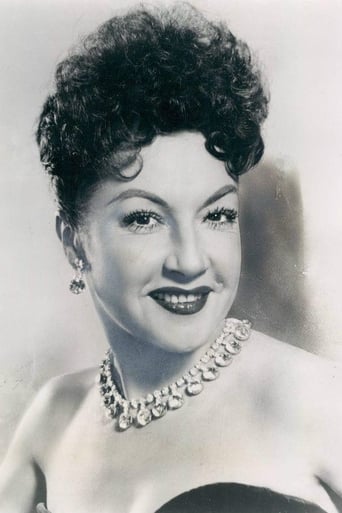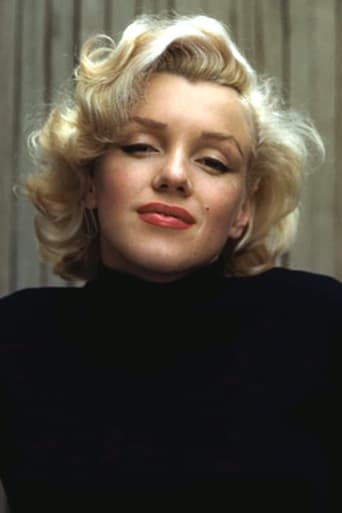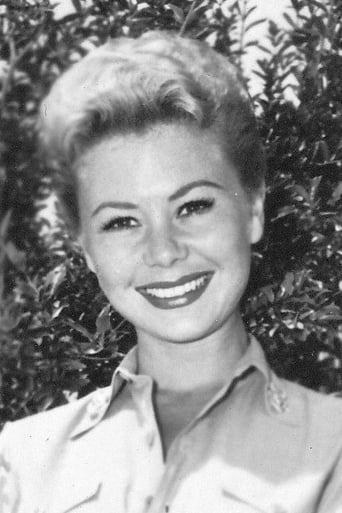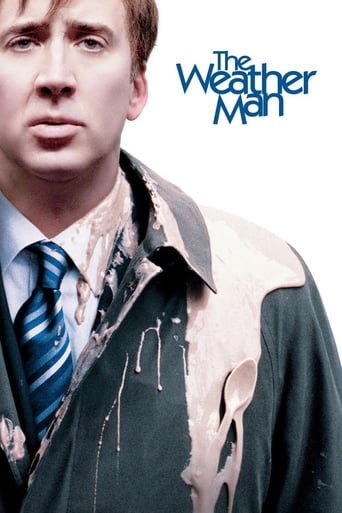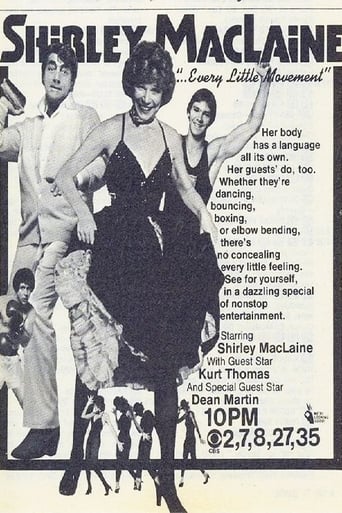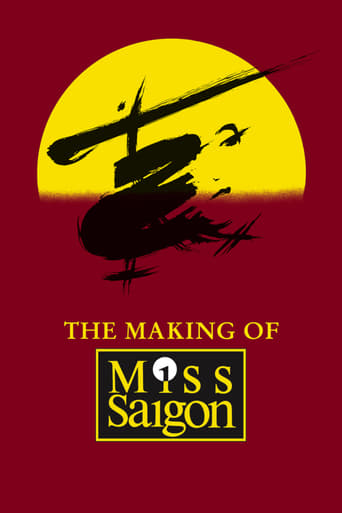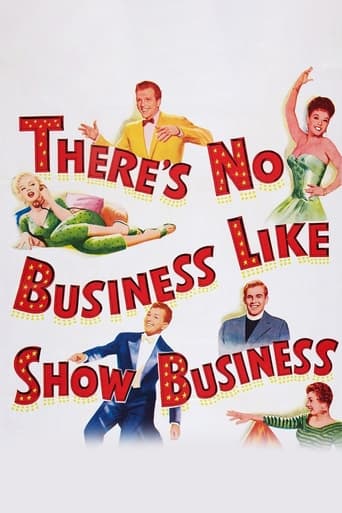
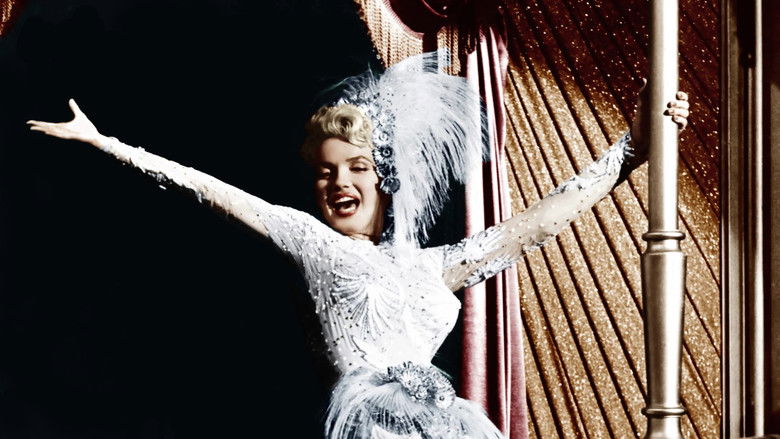
There's No Business Like Show Business (1954)
Molly and Terry Donahue, plus their three children, are The Five Donahues. Youngest son Tim meets hat-check girl Vicky and the family act begins to fall apart.
Watch Trailer
Cast
Similar titles
Reviews
Touches You
Excellent adaptation.
A lot of perfectly good film show their cards early, establish a unique premise and let the audience explore a topic at a leisurely pace, without much in terms of surprise. this film is not one of those films.
This movie feels like it was made purely to piss off people who want good shows
Producer: Solomon C. Siegel. Executive producer: Darryl F. Zanuck. "Heat Wave" staged and choreographed by Jack Cole. All other dances and musical numbers choreographed and staged by Robert Alton. Vocal supervision: Ken Darby. Copyright 1954 by 20th Century-Fox Film Corp. New York opening at the Roxy: 16 December 1954. U.S. release: December 1954. U.K. release: 21 March 1955. Australian release: 24 March 1955. Sydney opening at the Regent. 10,535 feet. 117 minutes.SYNOPSIS: Molly and Terry Donahue (Ethel Merman and Dan Dailey) bring up their three children in show business, the family forming an act billed as The Five Donahues. The three young Donahues are Tim (Donald O'Connor), Katy (Mitzi Gaynor) and Steve (Johnnie Ray). Steve quits the act to study for the priesthood. Tim meets Vicky (Marilyn Monroe) at a night club where she is a hat-check girl and sees her do a song when her agent brings a producer to meet her. The Four Donahues get a booking in a Florida hotel, where Tim discovers that Vicky is also on the bill. He talks his family into doing something else so that Vicky can do their "Heat Wave" number, which sets Molly against Vicky.NOTES: Nominated for awards for Best Motion Picture Story (would you believe?), Lamar Trotti, won by Philip Yordan for "Broken Lance"; Scoring of a Musical Picture, the Newman Brothers, won by Deutsch and Chaplin for "Seven Brides for Seven Brothers"; Color Costume Design, LeMaire, Travilla, White, won by Sanzo Wada for "Gate of Hell".Domestic rentals gross was probably not much less than $4 million — the movie didn't achieve this sort of standing in other markets. First of only two movie appearances of Johnnie Ray, an exceptionally popular "crying" crooner at the time.COMMENT: The rationale behind "There's No Business Like Show Business" was the same M-G-M used for "Seven Brides for Seven Brothers". Fill the CinemaScope screen with people! So not two or three Donahues, but five Donahues plus Marilyn Monroe. Unfortunately, the script which ties the many Berlin tunes together is no world-beater. True, it starts with plenty of zest, but soon drowns its gaudy spirits in an impossibly maudlin story by Lamar Trotti, of all people. (Trotti was actually writing the screenplay from his story outline when he suffered a fatal heart attack). My advice is just forget all about the dopey, ridiculous plot that pairs MM with Donald O'Connor yet, and requires her to deliver some really absurd lines about how much she loves the little bean-brain. Instead concentrate on MM and all the Berlin songs. Although making a late entrance, MM is certainly the best thing about the movie, easily upstaging the rest of the cast with her flamboyant costumes and breathless delivery. Her "Lazy" and "Heat Wave" numbers are highlights. (At the time of the film's release, Johnnie Ray in his first and only appearance in a big-budget feature film, garnered a fair share of publicity; but he's certainly no actor. His odd mannerisms and smirking delivery cheapen what was already a cheap part). As for the songs themselves, what an Irving Berlin feast! And how brilliantly handled, sung, danced and staged they are, and all treated with such justice by all the boys behind that full 20th Century-Fox sound recording!Lang has directed in his usual mousy style, allowing bumptious players like O'Connor, Merman and Dailey to hijack the movie on too many occasions. Photography suffers from the typical early CinemaScope fault of over-graininess.I am afraid I do not share some of my colleagues' enthusiasm for Lamar Trotti — as a writer that is. Trotti was a wonderful man. He was shy and extremely sensitive and had a great affection for people. Perhaps this very sympathy was his undoing (it killed him in the end of course, but I am speaking now of his work as a writer). With the possible exception of "The Ox-Bow Incident", all Trotti's writings (and when I say writings I mean screenplays, because Trotti never wrote anything else) lack any sense of urgency or topicality. They could not be described as crisp or incisive. They are not models of economy. Instead, they are long, leisurely-paced, full of inconsequential chit-chat. I have always maintained that there is no place on the screen, just as there is no place on the stage, for dialogue that does not fulfill at least three of the following functions: advancing the plot, giving the audience explanatory information, revealing the character of the speaker, being witty, and setting the mood of the scene. Trotti's dialogue rarely did justice to one of these functions, and frequently none."There's No Business Like Show Business" is a typical Lang-Trotti effort, just as were their previous collaborations: Wife, Doctor and Nurse (1937), Mother Wore Tights (1947), When My Baby Smiles At Me (1948), You're My Everything (1949), Cheaper by the Dozen (1950), With a Song in My Heart (1952). Trotti was working on "There's No Business Like Show Business" when he died of a heart attack in August 1952.
Puttin' on a show has long been a successful movie plot. This 1954 take spins a different aspect of the premise. Terry and Molly Donahue had been a successful vaudeville team in the golden days of vaudeville. As vaudeville declined they raised two boys and a girl they hoped would take their place in show business. One son becomes a priest. The daughter and the other son make it big in show business. The show business son is soon sidetracked by an intent on making it in show business female performer. After much realistic behind the scenes look at the dark side of show business all turns out right in the end for Ethel Merman, Marilyn Monroe, Mitzi Gaynor, songwriter Irving Berlin, Dan Dailey, Donald O'Connor and Johnny Ray. Ethel rocks the boat in Tattooed and There's No Business Like Show Business. The wide screen version today marketed on commercial DVD is a joy to watch.
Despite her fabulous vocals, There's No Business Like Show Business is nearly bogged down by Ethel Merman's over-the-top acting style. Also, 20th Century Fox seems to be showcasing costar Marilyn Monroe much more favorably in this picture. For instance, scenes with Monroe give a generous amount of close-ups of her. But scenes with the other characters when she is absent from the action are devoid of close-ups. The viewers should have an intimate relationship with all the characters in the story, not just with Marilyn Monroe.Merman and costar Donald O'Connor previously appeared in Call Me Madam, a year earlier at Fox. And back in the 1930s, Miss Merman appeared in the studio's smash hit Alexander's Ragtime Band, which also featured her singing classic Irving Berlin tunes. She wasn't so flamboyant in that production, and Marilyn Monroe was still Norma Jean Baker in those days.
I love Irving Berlin and in fact, all of the stars in the movie. But I find it hard to watch. Despite the spectacular song and dance numbers, the movie is a bore-fest. It would have been better to limit the dialog and scenes in between the musical numbers to a minimum, like they do in a Broadway play. Instead, we are treated to a scene of Merman dunking O'Connor's head in a sink. Or pseudo-drama when a son says he wants to become a priest. So the father was an idiot. Who cares? The first number was Berlin's "Alexander's Rag Time Band". They sang it over and over with different nationalities in different sets. Yes, this was Berlin's first big hit, but it's not that good that we want to hear it played over and over and over again. Even Paul McCartney's "Yesterday" would get old after about the 5th consecutive replaying.The only reason to watch this movie, as others have pointed out, is to see Marilyn Monroe. Is there any scene in any movie where she is not wonderful? Obviously, my view is slanted towards her. Her voice is so rich, her singing, dancing and movements so sensual, anytime she's on the screen is magic. After her fabulous "Heat Wave" number, all Merman can do is run it down. As in the cheesiest of scripts, the characters remain fixed in their bold, brassy, rah-rah something characters.
